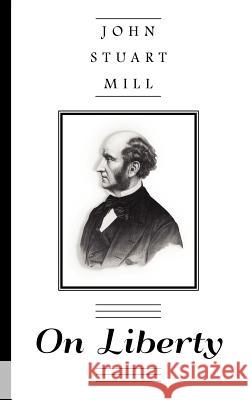On Liberty » książka
On Liberty
ISBN-13: 9781584772217 / Angielski / Twarda / 2011 / 210 str.
On Liberty
ISBN-13: 9781584772217 / Angielski / Twarda / 2011 / 210 str.
(netto: 98,44 VAT: 5%)
Najniższa cena z 30 dni: 93,96
ok. 16-18 dni roboczych.
Darmowa dostawa!
The Origin of Liberalism. Influenced by the Utilitarian philosopher Jeremy Bentham, Mill adopted a modified laissez-faire position, believing in the efficiency of free enterprise, but aware of the frequent failure of the market to maximize utility. Later refining this stance, he argued that the promotion of happiness is a moral duty (though he made a clear distinction between desirable and undesirable forms of pleasure). These ideas had a decisive influence on Mill's classic 1859 essay, perhaps the most celebrated defense of individual freedom and self-protection based on utilitarian values rather than natural right to appear in English. JOHN STUART MILL 1806-1873] was an English philosopher whose works made significant contributions to individualistic liberal political thought. He worked for the East India Company and was a Member of Parliament for one term. Mill's influence continues today in this and his other widely-read texts Utilitarianism (1863), The Subjection of Women (1869) and his Autobiography (1873).
The Origin of Liberalism. Influenced by the Utilitarian philosopher Jeremy Bentham, Mill adopted a modified laissez-faire position, believing in the efficiency of free enterprise, but aware of the frequent failure of the market to maximize utility. Later refining this stance, he argued that the promotion of happiness is a moral duty (though he made a clear distinction between desirable and undesirable forms of pleasure). These ideas had a decisive influence on Mills classic 1859 essay, perhaps the most celebrated defense of individual freedom and self-protection based on utilitarian values rather than natural right to appear in English.JOHN STUART MILL [1806-1873] was an English philosopher whose works made significant contributions to individualistic liberal political thought. He worked for the East India Company and was a Member of Parliament for one term. Mills influence continues today in this and his other widely-read texts Utilitarianism (1863), The Subjection of Women (1869) and his Autobiography (1873).











